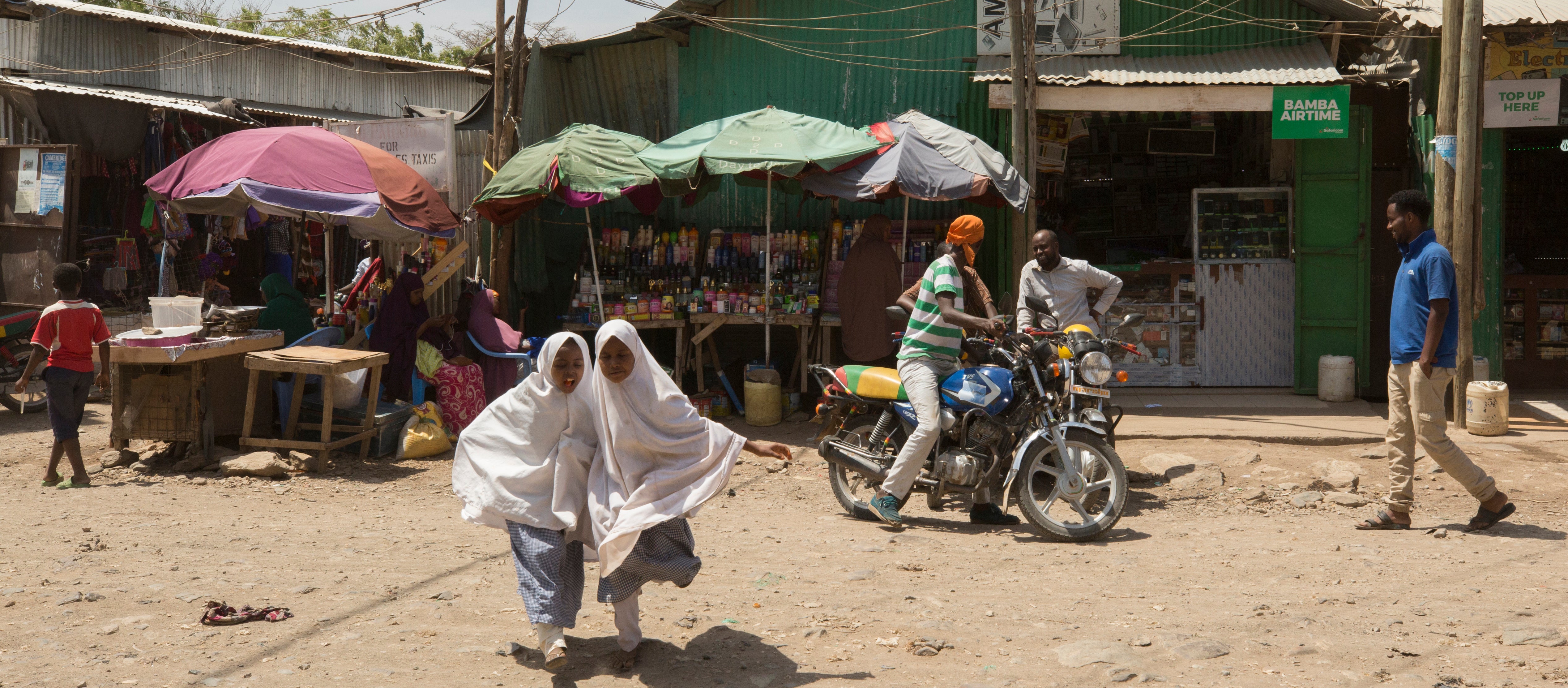 Kakuma Refugee Camp, Kenya. © Dominic Chavez/IFC
Kakuma Refugee Camp, Kenya. © Dominic Chavez/IFC
The world is witnessing the highest levels of displacement on record. Of the more than 70.8 million forcibly displaced persons worldwide, around 41 million are people who have been displaced from their homes but remain in their home country and nearly 25.9 million are refugees who have fled their countries.
One surprising fact: Some 85 percent of those who fled are hosted not in rich countries, but in developing countries with limited resources.
To address this growing crisis, the UN General Assembly issued a global compact on refugees last year. It calls for greater support for refugees and the countries that host them, including measures to help refugees become more self-reliant so that they can contribute more to their own futures and to their host communities.
It also calls for a paradigm shift in how the global community addresses this challenge of forced displacement. The traditional approach of relying on humanitarian organizations alone is not enough. Many situations have become protracted, with people facing the very real prospect of never being able to return home. Complementing humanitarian efforts with development support that benefits both displaced people and local host communities – who can be at least as poor – is critical.
Take, for example, the Kakuma Refugee Camp in northern Kenya, which is home to nearly 200,000 people. After decades of coexistence, the camp and its host community have become socioeconomically interdependent, with a $56 million annual economy based on household consumption. Refugees hire local people as porters, shopkeepers, security guards, or household helpers. Kakuma town residents sell livestock and charcoal to refugees, who would not otherwise be able to access such resources.
Kakuma (documented in the IFC study Kakuma as a Marketplace) demonstrates that there are tangible ways for refugees and host communities to use their skills and create market opportunities. Protracted situations of displacement, like we see in Kakuma, are forcing new thinking on how we can boost livelihoods through job-creating private investments. Innovation, after all, often flourishes in the most challenging circumstances.
It’s in this context that IFC, a member of the World Bank Group and the largest global development institution focused on the private sector in emerging markets, is sharpening its focus on identifying private-sector solutions and opportunities for refugees and host communities. Beyond humanitarian and philanthropic motives, we believe that looking at refugees through a business lens like any other large group of people, as individuals with skills and entrepreneurship, as consumers and workers, opens possibilities for building livelihoods with dignity and in a sustainable manner.
Our approach will build on some of IFC’s experiences investing in projects for refugees and their host communities. In the Middle East, for example, we invested in Luminus, a tech-enabled vocational training company that has successfully prepared and placed thousands of refugees and non-refugee populations in jobs.
Our approach will leverage IFC’s advisory services on the regulations needed for business-enabling environments. We are working with the local government to create policies that attract business investments as we prepare to launch the Kakuma Kalobeyei Challenge Fund, a $25 million business competition. The fund will target small and medium enterprises, larger firms, and refugee and host community entrepreneurs, providing them with finance and hands-on support to do business in Kakuma.
We will look at innovative instruments, including blended concessional finance, to expand our impact. In doing so, we will focus on both host and refugee communities, and especially on women and girls, to ensure equal economic opportunity. We will build market-oriented approaches, in line with IFC’s mission of supporting sustainable private sector-led development. And while we will be flexible to respond to emerging needs, our approach will engage and provide support only in those countries where the refugee protection framework is adequate as assessed by the UNHCR and in keeping with IDA guidance.
Partnerships will be central to our approach. The displacement crisis needs multiple organizations working together. In fact, none of the work we have undertaken in expanding our engagement with forcibly displaced populations would have been possible without partnerships.
Take, for instance, how we collaborate with the Netherlands, UNHCR, UNICEF, ILO, and the World Bank to improve the socioeconomic inclusion of the forcibly displaced and host communities in eight countries in East Africa and the Middle East. This new partnership, called “Prospects,” allows us to provide advisory services and blended concessional finance to bring private sector solutions to complement humanitarian and public-sector support. The challenge is, of course, global, and while much of our early experience is in Africa and the Middle East, IFC is also collaborating with UNHCR to address the growing forced displacement challenge in Latin America. In Brazil, for instance, we are mobilizing private investment in housing and other key sectors that can create jobs for refugees and host communities.
Ultimately, our approach will reflect a commitment to creating markets that open up opportunities for all. Given the protraction and complexities of forced displacement, we recognize that IFC and the private sector, working with UNHCR and other partners, must be part of the solution.


Join the Conversation